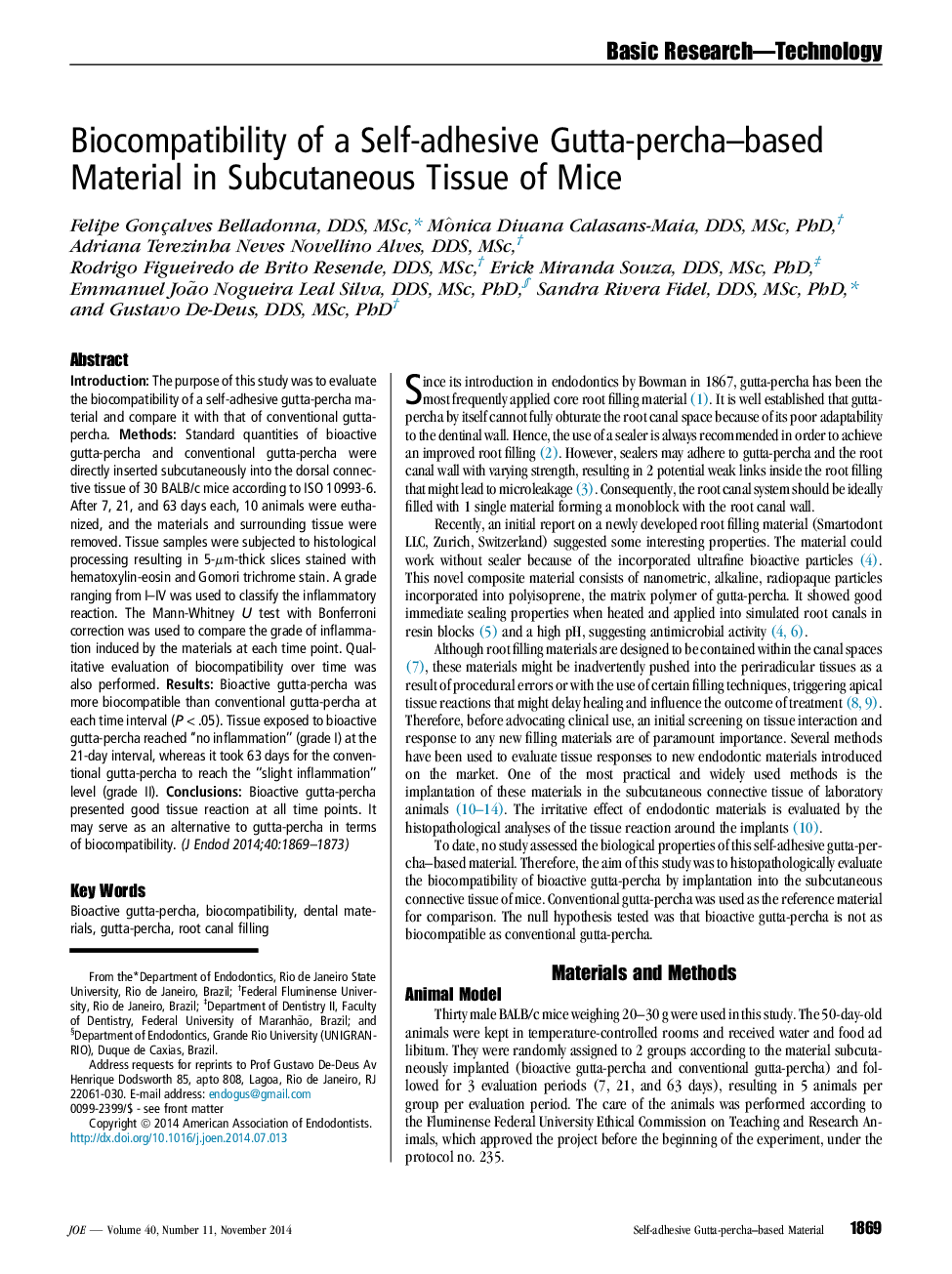| Article ID | Journal | Published Year | Pages | File Type |
|---|---|---|---|---|
| 3146644 | Journal of Endodontics | 2014 | 5 Pages |
•Bioactive gutta-percha was more biocompatible than conventional gutta-percha at each experimental time interval•The better tissue reactions promoted by bioactive gutta-percha might be explained by the presence of bioactive particles•Bioactive particles allows the precipitation of calcium phosphate at the material's surface forming a mineralized layer•To the present date, no study assessed the biological properties of this self-adhesive gutta-percha based material
IntroductionThe purpose of this study was to evaluate the biocompatibility of a self-adhesive gutta-percha material and compare it with that of conventional gutta-percha.MethodsStandard quantities of bioactive gutta-percha and conventional gutta-percha were directly inserted subcutaneously into the dorsal connective tissue of 30 BALB/c mice according to ISO 10993-6. After 7, 21, and 63 days each, 10 animals were euthanized, and the materials and surrounding tissue were removed. Tissue samples were subjected to histological processing resulting in 5-μm-thick slices stained with hematoxylin-eosin and Gomori trichrome stain. A grade ranging from I–IV was used to classify the inflammatory reaction. The Mann-Whitney U test with Bonferroni correction was used to compare the grade of inflammation induced by the materials at each time point. Qualitative evaluation of biocompatibility over time was also performed.ResultsBioactive gutta-percha was more biocompatible than conventional gutta-percha at each time interval (P < .05). Tissue exposed to bioactive gutta-percha reached “no inflammation” (grade I) at the 21-day interval, whereas it took 63 days for the conventional gutta-percha to reach the “slight inflammation” level (grade II).ConclusionsBioactive gutta-percha presented good tissue reaction at all time points. It may serve as an alternative to gutta-percha in terms of biocompatibility.
